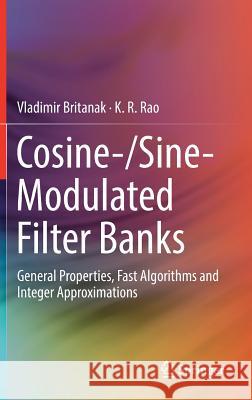Cosine-/Sine-Modulated Filter Banks: General Properties, Fast Algorithms and Integer Approximations » książka
topmenu
Cosine-/Sine-Modulated Filter Banks: General Properties, Fast Algorithms and Integer Approximations
ISBN-13: 9783319610788 / Angielski / Twarda / 2017 / 645 str.
Kategorie:
Kategorie BISAC:
Wydawca:
Springer
Język:
Angielski
ISBN-13:
9783319610788
Rok wydania:
2017
Wydanie:
2018
Ilość stron:
645
Waga:
1.11 kg
Wymiary:
23.39 x 15.6 x 3.66
Oprawa:
Twarda
Wolumenów:
01
Dodatkowe informacje:
Wydanie ilustrowane











